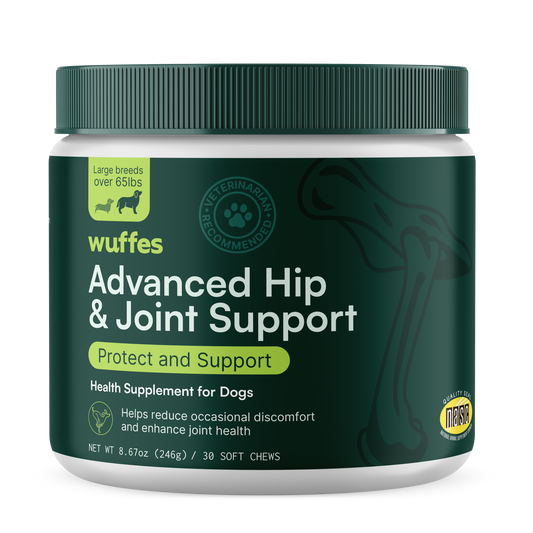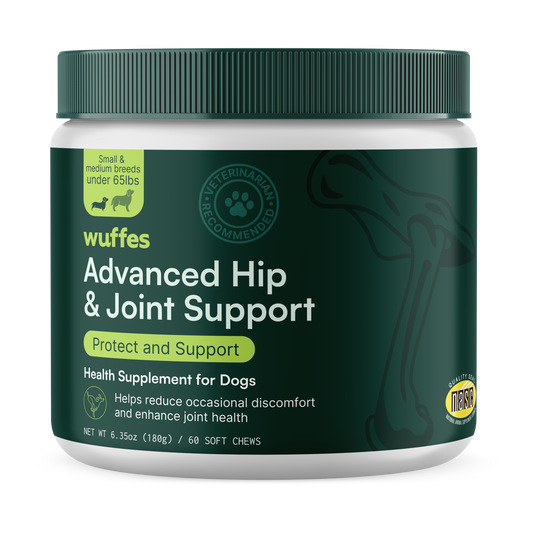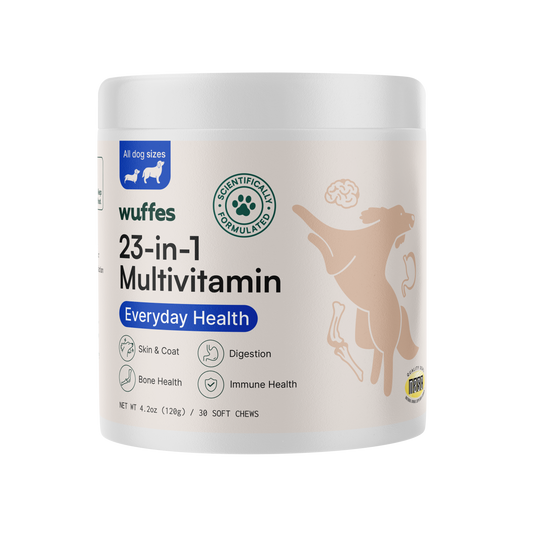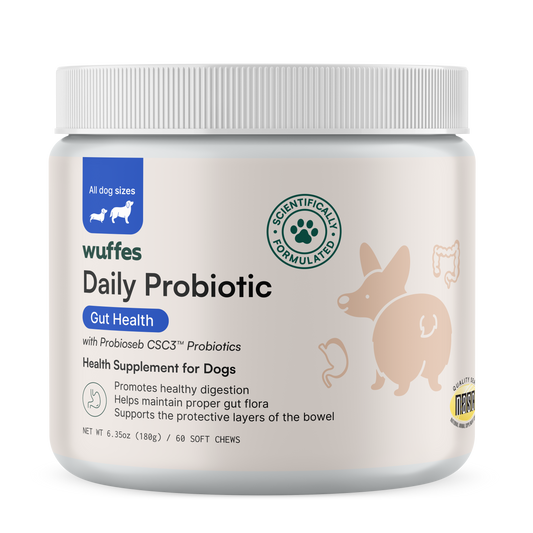Joint health is a common concern, especially for aging and large breed dogs. Many dog parents look for ways to either support their dog’s joint health proactively or ease any discomfort their pets might experience as they age. One effective solution is incorporating joint supplements into their routine. But when is the right time to start? Should supplements be introduced during the puppy stage, or is it better to wait until signs of joint issues appear?
Let’s explore how joint supplements can benefit your dog and when it’s best to start giving them.
Can supplements help prevent joint problems in dogs?
Maintaining good mobility is essential for dogs. Many breeds are naturally active, thriving on running, jumping, and playing to stay fit. Because of this, it’s crucial for dog owners to prioritize their dog’s bone and joint health from an early age.
While age is a key factor in developing joint issues, some breeds are also genetically predisposed to joint problems. Breeds like German Shepherds, Labrador Retrievers, Golden Retrievers, and Rottweilers are more likely to develop joint issues, but even smaller breeds such as Pugs and Shih Tzus can face similar challenges.
These breeds include, among others: German Shepherds, Labrador Retrievers, English Bulldogs, Golden Retrievers, Chow Chows, Rottweilers, Bloodhounds, Great Danes, Mastiffs, Daschunds, and even small ones like Pugs and Shih Tzus.
For these breeds, introducing joint supplements as early as eight months can be an excellent way to be proactive. Dogs that are particularly active, large-breed dogs, or those that frequently use stairs can benefit from starting supplements as early as eight weeks. Of course, this should be paired with a balanced diet and regular exercise for the best results.
Making supplement time easy for your dog
Getting your dog to take supplements can sometimes be a challenge, especially for younger pups who tend to be more selective with their food. However, with a little creativity and some simple tricks, you can easily make supplement time a positive and enjoyable experience for your pup.
Fortunately, they come in various forms that can help pup parents give it to their dogs without problems. Dietary supplements for dogs, like those for humans, now come in flavored pills, chewables, powders, and liquids.
If you’re unsure about the best option for your dog, consult your veterinarian. They can help you choose the right supplement and guide you on proper dosage.
Can supplements help alleviate existing joint discomfort in dogs?
If your dog is already experiencing occasional joint stiffness or discomfort, supplements can play a role in easing these symptoms. Some supplements contain ingredients with anti-inflammatory properties, while others support cartilage production, both of which can promote healthier joints.
One of the most well-known ingredients is glucosamine, which helps lubricate joints and supports the production of proteoglycan, essential for maintaining strong connective tissues. When combined with chondroitin, glucosamine becomes even more effective in promoting cartilage development.
Omega-3 fatty acids (EPA and DHA), typically found in fish oil, also offer significant benefits. They help reduce inflammation, support overall joint health, and contribute to stronger muscles. Another powerful ingredient is green-lipped mussels, which have been used for centuries to relieve joint pain due to their anti-inflammatory properties.
Should dogs still exercise while taking supplements?
Even with supplements, a proper diet and regular exercise are essential to preventing joint problems. Obesity can put extra strain on a dog’s joints, leading to discomfort over time. By maintaining an active lifestyle and a healthy weight, you can reduce the risk of joint issues and support your dog’s overall well-being.
Are the benefits of supplements long-lasting?
When used proactively, joint supplements can offer long-term benefits, helping your dog maintain mobility and comfort throughout their life. While results may take time to show, consistent, long-term use can make a significant difference, especially as your dog ages. Regular veterinary check-ups are also key to monitoring your dog’s joint health and adjusting supplement plans as needed.
Conclusion
Supporting your dog’s joint health early on can lead to a lifetime of benefits. By incorporating the right supplements, maintaining a healthy diet, and encouraging regular exercise, you can help your dog stay active, happy, and comfortable for years to come.










